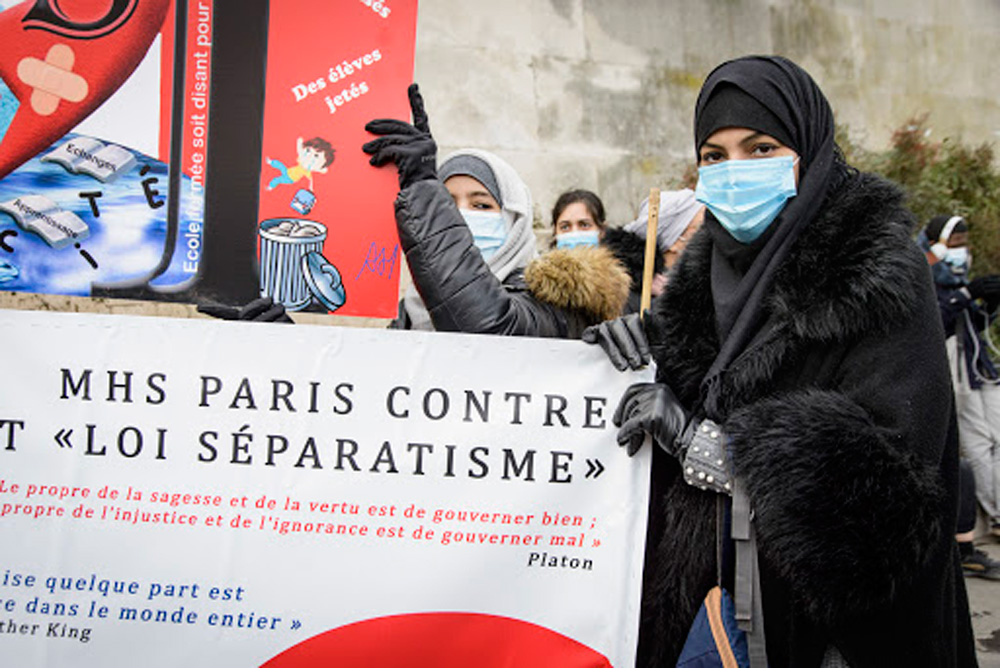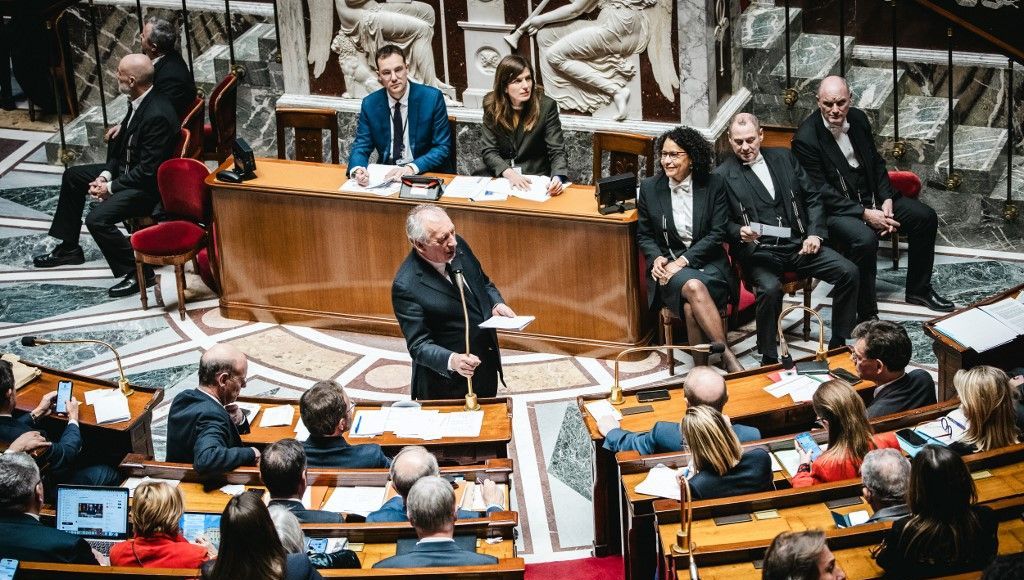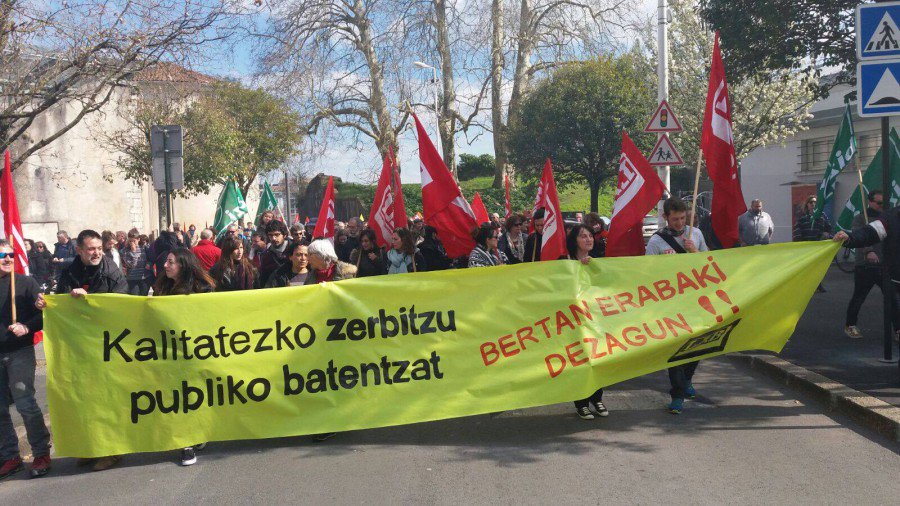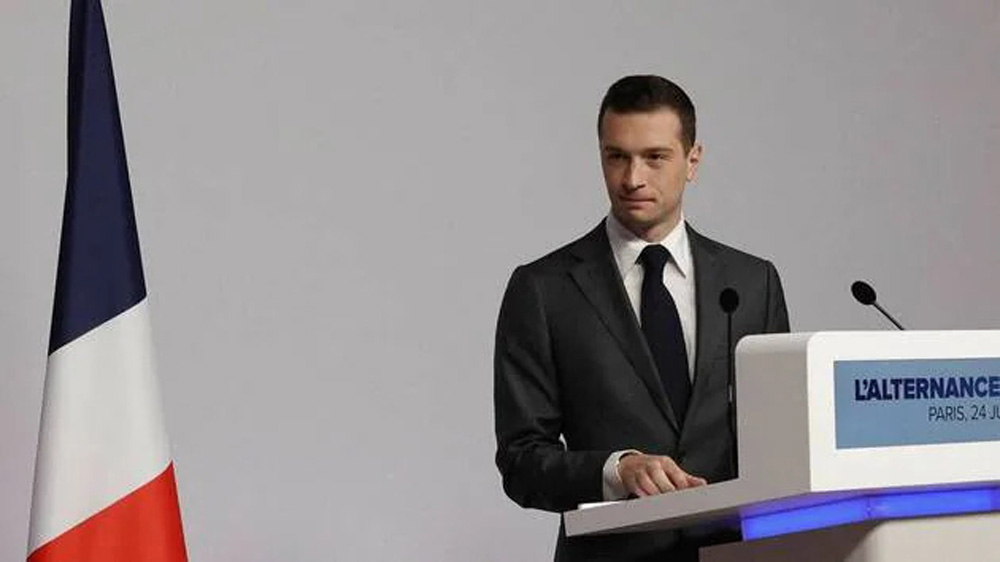Enforce the principles of the French Republic, going beyond freedoms
- With the aim of destroying radical Islamism, following the anti-separatist law or the official name, the Law of Consolidation of Respect for the Principles of the Republic is in the French Parliament. The bill arouses great concern among Muslims, as it involves intimidation of the freedom of religion and merely feeds an already suffocating Islophobic environment. In general, associations and the militant population are also alarmed, as the text implies increased control and repression.

In recent weeks, the draft law drafted by the French Government has generated many debates. Known as the law against separatism, more specifically the Law on the Consolidation of Respect for the Principles of the Republic, was the text presented in the Council of Ministers last December. Prime Minister Jean Castex has made clear from the outset: "The political ideology of radical Islamism is the enemy of the Republic." This bill has a new weapon that acts against him.
Marginalization and Muslim racism in the French State since the 1960s is an undeniable reality; and in recent years Islamophobia has become an even more violent reality, with the expansion of extreme right-wing ideas and fears and amalgams caused by Islamist attacks on society.
Many Muslims are concerned about the bill as a dangerous element in reducing freedom of worship and breaking up Islamophobia. In general, however, the associative world is also concerned, among other things, with the immediate control of citizens, by putting forward texts, new crimes and new obligations for the benefit of the French Republic. The structures operating in Euskal Herria and Euskal Herria are also concerned, since any association, be it Paris, Vasco, Cortsic or Brittany, will be required to adhere to the principles of the French Republic.
If the French Parliament repudiated the text, the 1911 Law, which included freedom of association, could be the 1905 Law, which included freedom of religion. The Human Rights League and dozens of other associations speak clearly: "Power tries to impose its vision of the Republic, in an absolutely sectarian and repressive trend. The political philosophy underlying this logic lies in the break with the democratic perspective of the republic". Parliament, with its vote in favour on 16 February, will be debating in the Senate from 30 March. 347 Members voted in favour, 151 against and 65 abstained. Those from the LREM party of Emmanuel Macron and the majority of the center were in favour and opposed to the right LR and Les Insoumis on the left, abstaining from the Socialist Party, the communists and the right-wing extremists.
Point by point what could be inferred from the text written by the French Government.
Crime of separatism
Anyone who threatens, assaults or intimidates a constituent or official will have a five-year prison and a fine of EUR 75,000. Indeed, Article 4 contains the "crime of separatism". The sanction shall be carried out by means of a complaint by the agent or the Administration who, with the consent of the aggressor in this case, acts as a voter or in public service.
Control of places of prayer
According to the Law of 1911, most mosques are currently declared as associations, but governments encourage them to place them in the Law of 1905 that regulates the framework of religious practices. Such a change would involve close monitoring of mosques, including greater accounting transparency. If they do not do so, they will have to comply with their obligations as an association, which oblige them to declare their activity in the prefecture for five years, but they will not receive the benefits provided by that Statute. In any event, in order to control the accounts of mosques, in the event of receiving an international source of income of more than EUR 10,000, they must declare it in the Suprefecto.
A judge may prohibit a person from going to the place of prayer for "terrorism" or for "discrimination, hatred or violence". The bill also opens the intestinal path of a mosque, accusing it of "tangling." The day after the Senate vote, Minister of the Interior, Gerard Darmanin, immediately announced that, once the law was passed, he will process the control of the 89 mosques, accusing him of "separatism", which will take the necessary intestinal step.
In addition to the law against separatism is the Charter of Principles for French Islam, required by the French Government, which has had to be signed by several representatives of Islam. It is a document written between the Ministry of the Interior and the French Council of Muslims in France, strongly criticised by many Muslims. If you read the letter, it is clear that it goes in the same direction: "Neither our religious convictions nor any other cause can replace republican law and constitutional principles."
It involves, among other things, the creation of the Imam National Council, which, from now on, will decide whether an imam will be able to act in France – of course, following the strict condition of respect for republican principles. Some 500 Muslim education and worship agents have just signed a letter against the following letter: “With the aim of ‘defending secularism’, the modalities of organizing the second religion in France have a direct and explicit hand – discharge, according to current legislation, the republic should be neutral in the face of each other’s beliefs – and to ‘promote equality’ a Muslim exception is created – because the other cults do not support treatment and criminalism; their associations, places of worship and religious positions do not question a message of walking.” There are also many agents who are committed to respect for human rights who are opposed to this charter.
This is not the only Muslim-oriented measure. For example, the first article contains the obligation to respect “religious neutrality” for private law agents responsible for a public service mission. In particular, it brings back to the present day the issue of the election of the Islamic handkerchief. Over the past three decades, and especially since the time of former President Nicolas Sarkozy, the Islamic handkerchief has led to the current situation on several occasions. So far, the ban has been restricted to officials, and since 2010 women have been unable to dress in ferruly or niqabis public spaces that cover their faces completely. In private companies, handkerchief is also prohibited in some limited cases.
The text also makes it possible to speed up controls and sanctions on polygamy, forced marriage or virginity documents banned in France.
In general, everybody's associative controlled.
Any association should undertake to "respect the Republican principles" in the application for grants. In accordance with Article 6, they must sign a "Republican Commitment Agreement" in order to be able to access the grants.
However, the Council of State, an administrative authority called the Defender of Rights, is recognised by dozens of associations as "antagonistic interpretations" and "uncertainties". In fact, what do they include in this set of principles? According to what will they interpret it? Eleven questions, however, refer to the competence of the State to arbitrarily locate one or another part of the associations. The letter published by the Coalition for the Freedoms of Associations reads as follows: "How to avoid the proliferation of obstacles in the public debate on associative activities that are facing a critical trend? As early as October 2020, the Observatory on Freedom of Association triggered an alarm with the "Repressed Citizens" report, which documented 100 cases of repression of associations.
The text extends government possibilities to curb the activity of an association: so far the association could be dissolved if the crime was channelled, but the law says that a member of the association may dissolve the association if the crime is committed. The Rights Defender herself has come to the conclusion that this enlargement is "excessive".
Sports federations authorised by the State will also move from a "protection regime" to a "control regime". In such cases, "respect for republican principles" would also be included in the approval.
Teaching from home, fewer and fewer opportunities
Parents who have their child at home and wish to transfer him/her to the school must obtain their consent and may only be authorised under the following conditions: due to a health problem, in the case of travelling families, if they are away from a school or on behalf of the decision to deal with the natural situation of the child. Until now, "children's education" is obligated – either from home or from school – from 2022 onwards, "school education" will be obligated, except for the exceptions mentioned. The school government has it as an instrument for integrating the values and principles of the French State: "School first has to be a place to pass the values of the republic, and not of a religion, through school we will face those who want to kill the republic! According to the president, Emmanuel Macron.
Schools that do not have contracts with the State will also be closely monitored, giving the State intestinal competence in case of "deviations". There are currently more than 1,500 schools in this case, with an average of 85,000 students. However, 70% are not linked to a religion – and Muslim schools are three times less than Catholic schools, although clearly in the spotlight. Therefore, the vast majority consists of alternative schools, let us say, which follow the Montessori pedagogy.
Instead of teaching in French, local language schools have also been long without reaching agreement with the State: at the seventeen years of the Diwan schools they teach in Breton, they were given the possibility to operate by agreement in 2013 and the ikastolas also gave 25 years without contract with the State. Today, despite the fact that these are private schools, the ikastolas are under contract. In this sense, teaching positions are paid by the State, and the city council that has a ikastola has an obligation to collaborate as much as the public school – but following what Seaska has repeatedly denounced, we know that the State and some municipalities do not fulfil these responsibilities. In return, among other things, they should follow the public programme and be inspected by the rector of the academy.
Broadening the category of "terrorists"
Those classified as "terrorism" are included in the Fixait file. The list is further extended, incorporating both the public square and the Internet into what drives or makes the "apology for terrorism", which will be punished with a seven-year prison sentence and a fine of EUR 100,000. Activities related to the public may not be channelled by the listed citizen.
Police protection measure
The ban on the photographic dissemination of police officers, which is intended to be enshrined in the Security Act, is re-introduced in this bill. Thus, Article 18 confirms the "crime of endangering your life by disseminating information about a person's private, family or professional life". After passing the law, the sentenced person must serve three years ' imprisonment and pay a fine of EUR 45,000 if the five-year prison sentence had been directed against a civil servant or public authority.
Two weeks ago, the financing of the French radio stations was at issue, as the French Ministry of Culture intended to reduce subsidies to local associations by 35%. At that time, there were about 200 associations in the labour market, including Euskal Irratiak of Iparralde.
The... [+]
Three months have passed since the elections to the French Parliament. It was July 7, and to everyone's surprise, the New Popular Front on the left, the FHB, won. With the aim of cutting the road to the far right that was successful in the first round, in the second round the... [+]
What seemed impossible or complicated has materialized: The leftist parties undertake to form a single candidature for the elections to the French Parliament. On the occasion of the victory of the far-right RN National Union in the votes to the European Parliament, President... [+]
Laborantza lizeoetan tokiko hizkuntzetako irakaskuntza sailen sortzea eztabaidatua izan da frantses legebiltzarrean. Legearen zuzenketa proposatu du Iñaki Etxaniz legebiltzarkideak.
























